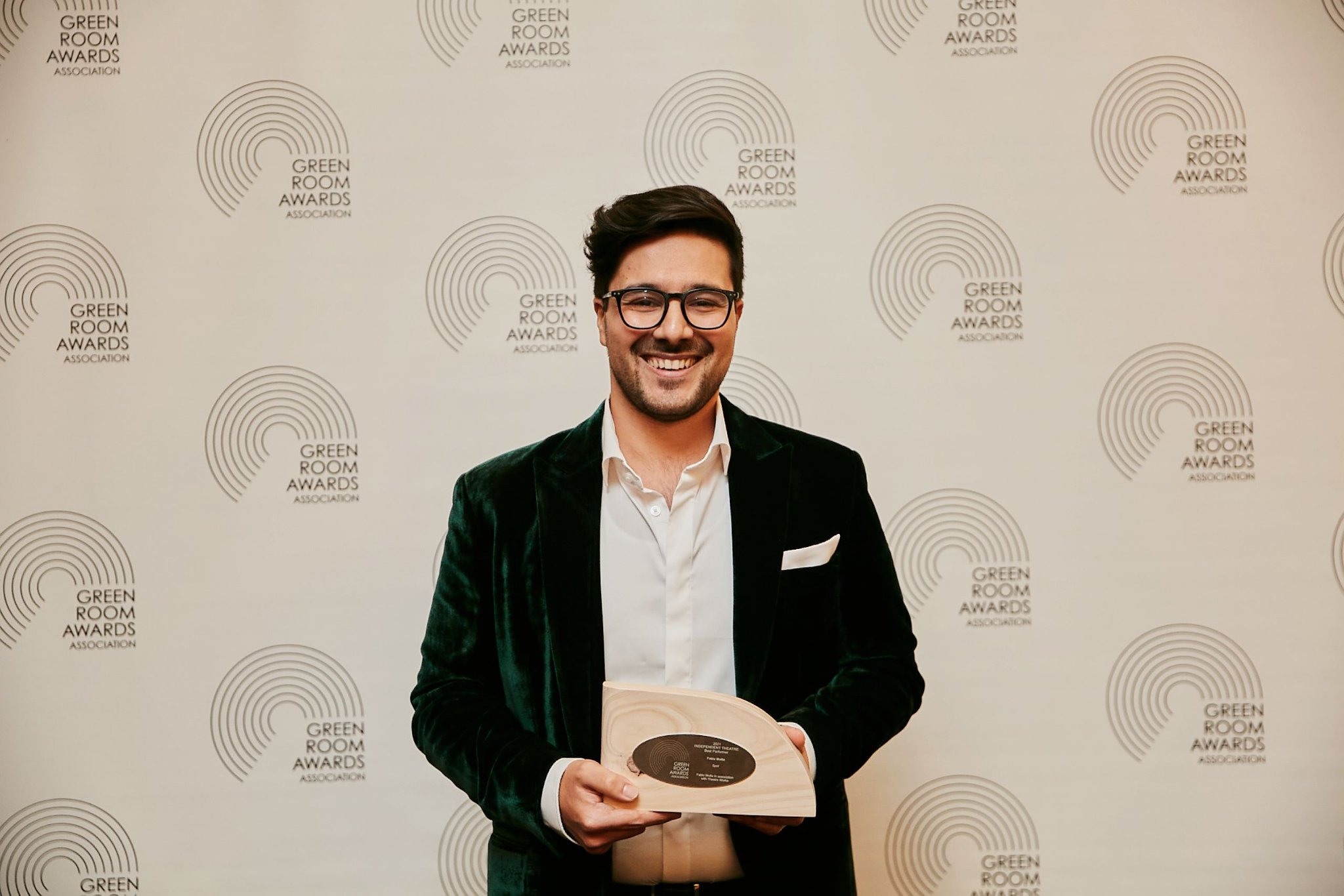Motta’s show, Spot, debuted at Theatre Works in St Kilda, before becoming part of the Melbourne International Comedy Festival.
The show fast became a fan favourite and Motta was awarded ‘Best Performer’ at the 39th Green Room Awards, one of the theatre community’s most coveted prizes.
“I’m extremely honoured and amazed that they’ve given the award to someone who’s created such a personal, physical and satirical story,” Motta says.
Spot, though witty and funny, is centred on a specific question: is Australia really the inclusive and multicultural place it markets itself to be?
Inspired by his family’s own story of migration, Spot invites audiences to lose themselves in the satire, physical comedy and memorable characters.
These characters include the young migrant, Mario, and his diabolical alter ego, Spot, who transports viewers across language barriers and through a profound feeling of loss.
Motta migrated to Australia in 1995, with his parents and brother, Alex.
His grandparents had already emigrated to Melbourne in the 1960s but decided to return to Italy permanently a decade later.
Motta left behind the Lombard town of Barzanò, along with the memories of his Italian childhood.
“I’ve always loved people,” Motta says.
“Even as a child, I’d dance in the square in front of everyone, leave my mother’s side and introduce myself to strangers we passed on the street.
“One evening, I saw Doctor Živago with my father; he thought I was going to nod off.
“Instead, I spent the film peppering him with questions.
“He explained to me that the people on the screen were just actors and that their job was to tell stories.
“It was then that I understood what I wanted to do when I grew up and I began asking my classmates to act with me.
“After I saw The Mask, I took my grandmother’s green handkerchief to school, transformed it into a mask in the bathroom and went back to class, where I jumped on the desks and told jokes, as if I were possessed!”
In Australia, at seven years old, Motta abandoned his funny side to focus on his studies and to “reach the level of his peers”.
Though he had always continued to be involved with theatre throughout his education, after he graduated, Motta began studying Law.
“In some of the legal offices where I worked, they told me not to waste time with frivolous activities,” he explains.
In the wake of those comments, Motta left his career in law behind.
He moved to Italy to study Commedia dell’Arte at the Venetian Theatre Academy, then to Paris to learn from Philippe Gaulier.
“I was finally in the right place,” he says.
“Theatre was a game, le jeu, where entertainment was more important than enunciation.
“I was free and spontaneous; I found power in playing the clown and rediscovered the pleasure of acting.”

Fabio Motta dressed as a clown during his show ‘Spot’ (Photo: Tricia Ziemer)
After finishing a course at the Herbert Berghof Studio in New York and creating his first significant pieces, Motta was forced to return to Melbourne, due to the requirements of the residence visa in the United States.
He appeared in several television series, including Utopia and Ronny Chieng: International Student.
Motta began teaching theatre, imparting his knowledge of comedic acting to eager students.
After years of artistic commitment, successes and failures, the Green Room Award for ‘Best Performer’ has validated the importance and universality of Motta’s story.
“Spot gave me the opportunity to connect with my identity,” he says.
“Even today, I go to Italy, but I am not Italian.
“In Lecco, they tell me that my complexion is too dark, and therefore, I’m Sicilian.
“In the South, they tell me that I have a Northern accent.
“At auditions, I’m not ‘diverse’ enough to represent minorities, as Italians had ‘ample’ representation in cinema during the 1990s and early 2000s.
“Despite all this, I’m still not considered ‘white’; I’m something in between and undefinable.
“At the moment, I’m busy directing a show for the Fringe Festival, but I’d like to return to the stage with just one show.
“I’ve realised that you can only save yourself by expressing your fears, suffering and resentment.
“I want to continue to tell my truth on the stage and use the theatre as part of my healing process.”












